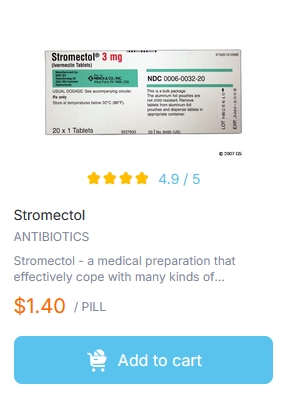
Ivermectin and COVID-19: Examining the Evidence
Understanding Ivermectin in the Context of COVID-19
Ivermectin is a medication that has gained significant attention during the COVID-19 pandemic. Originally used to treat various parasitic infections, its potential application against COVID-19 has been a topic of extensive research and debate.
The Mechanism of Action
Ivermectin works by binding to specific proteins in parasites, disrupting their function and leading to their demise. Researchers explored whether this mechanism could also apply to the SARS-CoV-2 virus responsible for COVID-19.
Research Findings
- Initial lab studies suggested ivermectin might inhibit the replication of the virus in vitro.
- Clinical trials have yielded mixed results, with some showing minimal effectiveness in treating COVID-19.
- The World Health Organization (WHO) and other health authorities have issued guidelines regarding its use.
Guidelines and Recommendations
Health organizations around the world have developed specific recommendations regarding ivermectin:
- WHO advises against the use of ivermectin for COVID-19 outside of clinical trials.
- The Food and Drug Administration (FDA) cautions against using ivermectin intended for animals.
- Evidence-based treatment options should be prioritized over unproven therapies.
FAQs about Ivermectin and COVID-19
1. Can ivermectin cure COVID-19?
No, current evidence does not support the use of ivermectin as a cure for COVID-19.
2. Is ivermectin safe to take for COVID-19?
Ivermectin can be safe when prescribed by a healthcare professional for approved uses, but its safety in the context of COVID-19 remains uncertain.
3. Should I take ivermectin if I test positive for COVID-19?
You should consult your healthcare provider for appropriate treatment options instead of self-medicating with ivermectin.
4. What are the side effects of ivermectin?
Common side effects include nausea, diarrhea, dizziness, and fatigue. Severe reactions can occur but are rare.
Conclusion
The discussion surrounding ivermectin in the context of COVID-19 highlights the importance of relying on scientific evidence and professional medical guidance. As research continues, it is crucial for individuals to stay informed through reputable sources and adhere to recommended treatments.
Evaluating the Efficacy and Safety of Ivermectin as a Treatment for COVID-19
Understanding Ivermectin and Its Potential Role in COVID-19 Treatment
Ivermectin, an antiparasitic medication, gained significant attention during the COVID-19 pandemic as a potential treatment option. This article evaluates the efficacy and safety of ivermectin for treating COVID-19, examining various studies and authoritative perspectives.
The Mechanism of Action
Ivermectin is known primarily for its ability to combat parasitic infections. Researchers have proposed several mechanisms through which ivermectin could potentially inhibit SARS-CoV-2, the virus responsible for COVID-19:
- Disruption of viral replication.
- Interference with the virus’s ability to enter host cells.
- Modulation of the immune response.
Clinical Studies on Ivermectin and COVID-19
Numerous studies have investigated the use of ivermectin as a treatment for COVID-19. The findings, however, have been mixed.
Key Research Outcomes
- Small-Scale Trials: Some early trials suggested marginal benefits in reducing viral load, but they often lacked rigorous methodology.
- Large-Scale Reviews: Systematic reviews and meta-analyses generally concluded that there was insufficient evidence to support ivermectin’s effectiveness in treating COVID-19.
- Safety Concerns: While ivermectin is considered safe for approved uses, large doses or inappropriate usage for COVID-19 raised safety issues.
Regulatory Stance on Ivermectin
Health organizations and regulatory bodies have issued statements regarding the use of ivermectin for COVID-19:
- World Health Organization (WHO): Recommends against the use of ivermectin outside of clinical trials.
- U.S. Food and Drug Administration (FDA): Warns against using ivermectin meant for animals and encourages that it should only be used as prescribed by healthcare providers.
- National Institutes of Health (NIH): States there is insufficient evidence to recommend ivermectin for the treatment of COVID-19.
Potential Risks and Side Effects
While ivermectin is typically well-tolerated, potential adverse effects can occur, particularly when misused. Common side effects include:
- Nausea
- Dizziness
- Diarrhea
- Skin rash
Frequently Asked Questions (FAQs)
Is ivermectin an effective treatment for COVID-19?
Current evidence does not support the efficacy of ivermectin in treating COVID-19. Major health organizations recommend against its use outside clinical trials.
What are the risks associated with taking ivermectin for COVID-19?
Using ivermectin without medical supervision can lead to serious side effects, especially if taken in inappropriate dosages.
Are there alternative treatments for COVID-19?
Several treatments, including antiviral medications like remdesivir, monoclonal antibodies, and supportive care, have demonstrated efficacy for COVID-19.
Conclusion
The ongoing investigation into COVID-19 treatments highlights the importance of relying on robust clinical trials and scientific evidence. While ivermectin has shown promise in other contexts, its role in treating COVID-19 remains unsubstantiated. Public health measures and vaccination continue to be the most effective strategies against the virus.
Assessing the Role of Ivermectin in COVID-19 Treatment: Evidence and Controversies
Introduction
The COVID-19 pandemic has spurred extensive research into various treatment options. Among these, ivermectin has emerged as a controversial candidate. Originally developed as an antiparasitic agent, its potential efficacy against SARS-CoV-2 has sparked considerable interest and debate within the scientific community.
Mechanism of Action
Ivermectin is known to bind to certain ion channels in parasites, leading to paralysis and death. Some studies suggest that it might also inhibit the replication of various viruses by interfering with their ability to enter host cells. This mechanism raised hopes for its use in treating COVID-19, particularly in early stages of infection.
Clinical Trials and Evidence
Numerous clinical trials have been conducted to assess ivermectin’s effectiveness in treating COVID-19. Initial studies reported positive outcomes, leading to calls for its widespread use. However, more rigorous trials have produced mixed results, with many failing to demonstrate significant benefits compared to standard care or placebo treatments.
Guidelines from Health Organizations
Controversies Surrounding Ivermectin
The discussion around ivermectin’s role in COVID-19 treatment has been polarized. Proponents argue that existing studies indicate some promise, while critics highlight the methodological flaws and insufficient data. This divide has fueled debates on social media and in medical circles, complicating public understanding.
Public Perception and Misuse
The controversy surrounding ivermectin has led to an increase in its off-label use and, in some cases, misuse. Reports of individuals self-medicating with veterinary formulations have raised serious concerns about safety and adverse effects. Education on proper treatments remains critical in combating misinformation.
Conclusion
As research continues, the role of ivermectin in COVID-19 treatment remains uncertain. While some early studies suggested potential benefits, subsequent investigations have largely failed to support its use in clinical practice. Stakeholders must prioritize rigorous research and clear communication to guide treatment decisions and address public concerns about ivermectin and COVID-19.
Articles récents
- Aztec casino games for real money Idols Slot, Playn Wade Reviews, ghostbusters $step 1 deposit Demo Game 2025
- Kasino Hauptpreis Progressive Hauptgewinn Slots within Neue jiomoney Casino -Sites Verbunden Casinos
- Better Live Gambling enterprises Philippines 2025: Finest People, Added bonus & Game Online




